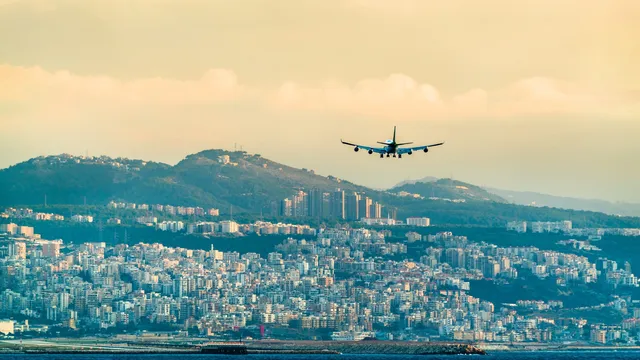
Iranian delegation suspected of financing Hezbollah in Beirut
2025-01-03 16:45- An Iranian delegation was suspected of transporting millions to Hezbollah after arriving in Lebanon.
- The delegation attempted to evade a search of their bags, leading to confiscation of one bag.
- The incident highlights ongoing tensions between Iran and the U.S. over influence in Lebanon.
Express your sentiment!
Insights
In a significant incident that took place at Beirut's Rafic Hariri International Airport, an Iranian delegation arrived on an Iranian Air Mahan flight from Tehran and was suspected of bringing funds intended for Hezbollah, a designated terror group. Upon arrival, the delegation attempted to evade a search, which raised further suspicions. Allegedly, when a member of the delegation refused to allow his bag to be searched, authorities confiscated the bag while allowing two diplomatic bags meant for the embassy to pass through without inspection. Additionally, a search of the plane revealed nothing suspicious, adding a layer of complexity to the situation. The context surrounding this event involves ongoing tensions in the Middle East, particularly in relation to Israel and Hezbollah. Iranian Foreign Minister Abbas Araghchi previously indicated Tehran's unwavering support for Lebanon, asserting that Iran would back the country by any means should conflicts escalate further. His remarks were underscored by Iran’s perception of Israel as a destabilizing force in the region, which Tehran attributes as an instigating factor for raising tensions. Iran and the U.S. are in a power struggle for influence in post-war Lebanon, with American efforts aimed at curbing Hezbollah’s dominance. Recent events have diminished Hezbollah’s standing, particularly following the elimination of key leadership figures within the group. The United States and its allies are focused on exploiting what they view as Hezbollah’s vulnerabilities and are engaging with Lebanese leaders to navigate the political deadlock that has arisen in the wake of these developments. As tensions remain high, further developments regarding Iranian support for Hezbollah and the implications for Lebanese politics are likely to continue to unfold. The incident involving the Iranian delegation underscores the deep-seated complexities and the ongoing battle for influence in the region, marking a critical juncture in Middle Eastern geopolitics, particularly between the competing interests of Iran and the United States.
Contexts
The influence of the United States in Lebanon has evolved significantly since the end of the Lebanese Civil War in 1990. Initially, post-war U.S. policy focused on stabilizing Lebanon and supporting the national government amid a fragmented political landscape. This included financial aid, logistical support, and military assistance aimed at rebuilding the Lebanese Armed Forces and fostering governance structures that could promote democracy and resilience against extremism. U.S. efforts were largely driven by the need to counter Iranian influence in the region, particularly through Hezbollah, which emerged as a powerful non-state actor during the 1980s and continued to challenge U.S. and Israeli interests. In the 2000s, the U.S. intensified its engagement, particularly after the assassination of former Prime Minister Rafik Hariri in 2005, which spurred public protests against Syrian presence in Lebanon. The U.S. supported the Cedar Revolution, a popular uprising that sought to end Syrian dominance and promote democratic governance in Lebanon. This period marked a shift as U.S. policy increasingly emphasized the importance of human rights and political reform. Financial assistance was linked to political milestones, with an intention to empower civil society and foster a participatory governance model. However, maintaining influence has become increasingly complicated due to the multifaceted crises Lebanon has faced over the past decade, including political paralysis, economic collapse, and social unrest. The 2019 protests against governmental corruption and mismanagement signaled a turning point where public trust in traditional political elites diminished. In this context, the U.S. has had to navigate a delicate balance between supporting reform efforts and avoiding actions that could exacerbate sectarian tensions. The economic and humanitarian crises have prompted calls for increased U.S. support to provide assistance to the Lebanese populace, but this has frequently clashed with the complex interplay of local and regional politics. As of 2025, U.S. influence in Lebanon remains significant but fraught with challenges. While it continues to provide humanitarian aid and support for the Lebanese Armed Forces, the effectiveness of U.S. policy is often questioned in light of the prevailing conditions in the country. Iran’s backing of Hezbollah, the ongoing economic turmoil, and the lack of political consensus among Lebanon's diverse sectarian groups complicate the U.S.'s goal of establishing a stable and democratic Lebanon. Future U.S. engagement will likely need to address the root causes of instability while fostering genuine dialogue among all Lebanese factions to ensure a holistic and sustainable approach to rebuild trust and confidence in the political system.